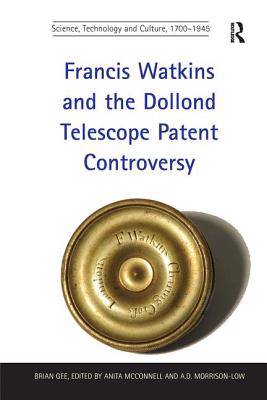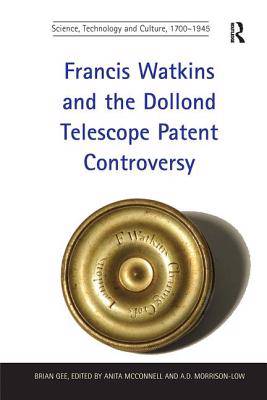
- Afhalen na 1 uur in een winkel met voorraad
- Gratis thuislevering in België vanaf € 30
- Ruim aanbod met 7 miljoen producten
- Afhalen na 1 uur in een winkel met voorraad
- Gratis thuislevering in België vanaf € 30
- Ruim aanbod met 7 miljoen producten
Zoeken
Francis Watkins and the Dollond Telescope Patent Controversy. Brian Gee
Brian Gee, Edited By Anita McConnell
€ 77,45
+ 154 punten
Uitvoering
Omschrijving
Francis Watkins was an eminent figure in his field of mathematical and optical instrument making in mid-eighteenth century London. Working from original documents, Brian Gee has uncovered the life and times of an optical instrument maker, who - at first glance - was not among the most prominent in his field. In fact, because Francis Watkins came from a landed background, the diversification of his assets enabled him to weather particular business storms - discussed in this book - where colleagues without such an economic cushion, were pushed into bankruptcy or forced to emigrate. He played an important role in one of the most significant legal cases to touch this profession, namely the patenting of the achromatic lens in telescopes. The book explains Watkins's origins, and how and why he was drawn into partnership with the famous Dollond firm, who at that point were Huguenot incomers. The patent for the achromatic telescope has never been satisfactorily explained in the literature, and the author has gone back to the original legal documents, never before consulted. He teases out the problems, lays out the evidence, and comes to some interesting new conclusions, showing the Dollonds as hard-headed and ruthless businessmen, ultimately extremely successful. The latter part of the book accounts for the successors of Francis Watkins, and their decline after over a century of successful business in central London.
Specificaties
Betrokkenen
- Auteur(s):
- Uitgeverij:
Inhoud
- Aantal bladzijden:
- 430
- Taal:
- Engels
- Reeks:
Eigenschappen
- Productcode (EAN):
- 9781138279544
- Verschijningsdatum:
- 27/02/2017
- Uitvoering:
- Paperback
- Formaat:
- Trade paperback (VS)
- Afmetingen:
- 156 mm x 233 mm
- Gewicht:
- 809 g

Alleen bij Standaard Boekhandel
+ 154 punten op je klantenkaart van Standaard Boekhandel
Beoordelingen
We publiceren alleen reviews die voldoen aan de voorwaarden voor reviews. Bekijk onze voorwaarden voor reviews.











